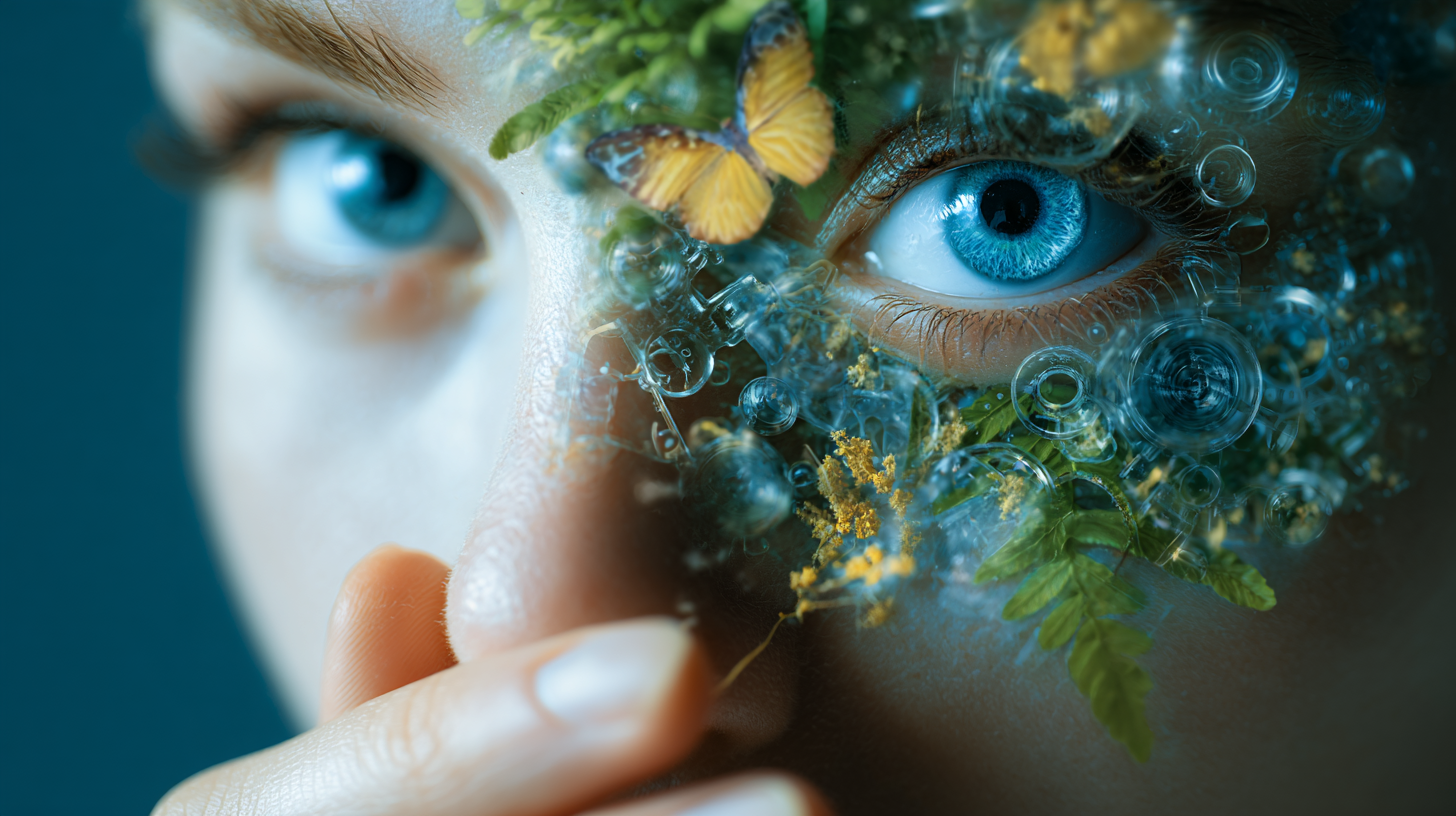
Exploring the Future: How 'Best Natural Scent' Technology Will Revolutionize Industries by 2025
As industries increasingly seek innovative ways to enhance consumer experiences, the emergence of "Best Natural Scent" technology is poised to redefine market dynamics by 2025. A report by Grand View Research projects that the global fragrance market will reach USD 43.3 billion by 2024, driven primarily by demand for natural ingredients and organic formulations. This surging interest in Natural Scent reflects a broader trend where consumers increasingly prefer products free from synthetic additives, fostering a shift towards sustainability and well-being. According to a Nielsen study, 66% of global consumers are willing to pay more for sustainable brands, highlighting the potential for Natural Scent technology to not only transform product offerings across industries such as personal care, food and beverage, and hospitality but also to create new avenues for brand loyalty and differentiation. As we delve deeper into the implications of this technology, it becomes clear that the future is fragrant—and naturally so.

The Rise of 'Best Natural Scent' Technology in Consumer Products by 2025
The rise of 'Best Natural Scent' technology is set to transform consumer products in unprecedented ways by 2025. This innovative approach harnesses the power of nature to create authentic scents that resonate with consumers seeking sustainable and health-conscious options. As more people become aware of the potential harms of synthetic fragrances, the demand for natural alternatives has surged. Companies are increasingly turning to advanced extraction techniques and biotechnological methods to capture the essence of plants and flowers, ensuring that the aromatic profiles of their products are both appealing and environmentally friendly.
With industries from personal care to home fragrances embracing this trend, the landscape of scent is evolving. Brands are leveraging natural scent technology not just to differentiate themselves in a crowded market but also to align with consumers' values around sustainability and wellness. By 2025, we can expect to see an influx of products enriched with these best natural scents, offering consumers a multisensory experience that is not only enjoyable but also deeply connected to the natural world. This shift will redefine how products are marketed and consumed, creating a fascinating intersection between nature, technology, and consumer preference.

Impact of Sustainable Fragrance Alternatives on the Global Market
The rise of sustainable fragrance alternatives is set to reshape the global market significantly. As consumers become increasingly mindful of their environmental impact, brands are responding by adopting eco-friendly solutions in their product offerings. The solid perfume market, projected to grow from USD 1.54 billion in 2025 to USD 2.77 billion by 2032, highlights this shift. A growing preference for solid perfumes, often packaged in more sustainable materials, reflects a larger trend towards natural scents that minimize harmful additives.

Innovative materials, such as those derived from cellulose fibers sourced from waste plant materials, are gaining traction. These advancements not only contribute to less plastic waste but also create a more sustainable product lifecycle. This technological evolution in the fragrance industry aligns with the broader movement towards sustainability, influencing various sectors beyond beauty, including packaging and consumer goods. As companies continue to prioritize environmental responsibility, the future looks promising for sustainable fragrance innovations that cater to conscious consumers.
Industry Trends: How Natural Scents Are Transforming the Personal Care Sector
Natural scents are gaining momentum in the personal care sector, thanks to their myriad benefits that resonate with today’s conscious consumers. As brands strive to align with the growing demand for organic and sustainable products, the incorporation of best natural scents has become a game-changer. This shift not only enhances the sensory experience but also promotes well-being, as many natural scents are known for their therapeutic qualities. Consumers are increasingly choosing products infused with essential oils and naturally derived fragrances over synthetic fragrances, which cater to both their health and environmental concerns.
To make the most of this trend, consider incorporating these tips into your personal care routine. First, opt for products that highlight naturally sourced ingredients, ensuring that you are supporting brands committed to sustainability. Second, explore aromatherapy options in your daily skincare and wellness rituals; for instance, using lavender or eucalyptus oils can elevate your mood and create a calming environment. Lastly, stay updated on the latest innovations in scent technology to discover how brands are harnessing the power of nature to create even more transformative personal care experiences.
Exploring the Future: How 'Best Natural Scent' Technology Will Revolutionize Industries by 2025
| Industry | Natural Scent Application | Projected Growth Rate (%) | Key Benefits |
|---|---|---|---|
| Personal Care | Fragrance and deodorants | 10% | Enhanced user experience, reduced chemical use |
| Food and Beverage | Flavor enhancement | 8% | Natural taste improvement, health benefits |
| Cleaning Products | Natural scent formulations | 12% | Reduced irritants, eco-friendly alternatives |
| Aromatherapy | Essential oils | 15% | Mental wellness, stress relief |
| Cosmetics | Natural fragrance integration | 9% | Improved sensory experience, skin health |
Enhancing Food and Beverage Experiences with Innovative Scent Technology
As we look toward 2025, the food and beverage industry is poised for a remarkable transformation driven by innovative scent technologies. Consumer preferences are increasingly leaning toward products that not only taste good but also offer a complete sensory experience. The latest advancements in scent technology are enabling brands to create unique olfactory experiences that enhance enjoyment and engagement, setting a new standard in food and beverage offerings.
Recent developments highlight the importance of sensory science in consumer decision-making. With the integration of AI and digital scent technology, companies are crafting tailored experiences that resonate deeply with individual consumers. By tapping into the emotional power of scents, brands can evoke memories, influence moods, and even drive purchasing decisions. This evolution emphasizes a holistic approach to flavor and fragrance, where the synergy between taste and scent plays a critical role in defining how consumers interact with products.
Sustainability is also a key focus as brands navigate the growing demand for clean label trends and environmentally friendly practices. Innovative scent technologies are not just about enhancing experiences; they are being engineered with sustainability in mind. The future of the food and beverage industry is bright, as these advancements promise to revolutionize how we perceive and enjoy our favorite products, engaging all the senses in a way that has never been done before.
The Role of AI in Developing Advanced Natural Aroma Solutions for Various Industries
As we delve into the future of scent technology, the role of artificial intelligence cannot be overstated. The integration of AI in developing advanced natural aroma solutions is set to redefine how industries harness the power of scent. By 2025, we anticipate a surge in AI-driven algorithms that analyze consumer preferences and environmental factors to create bespoke fragrance profiles tailored to specific applications, from food and beverage to personal care products.
AI technologies will streamline the production process by predicting ingredient availability and optimizing formulation techniques. This means that manufacturers will be able to produce more sustainable, natural aromas with enhanced efficacy, ultimately appealing to a growing consumer base that values authenticity and environmental responsibility. The convergence of AI with the craft of scent creation not only improves efficiency but also opens up avenues for innovative scent experiences, allowing brands to connect with customers on a deep, sensory level.
Impact of AI on Natural Scent Technology by 2025
This chart illustrates the projected market adoption rate of AI-enhanced natural scent technology across various industries by the year 2025. The data indicates a strong trend towards integrating advanced aroma solutions in sectors such as food, cosmetics, and pharmaceuticals.
